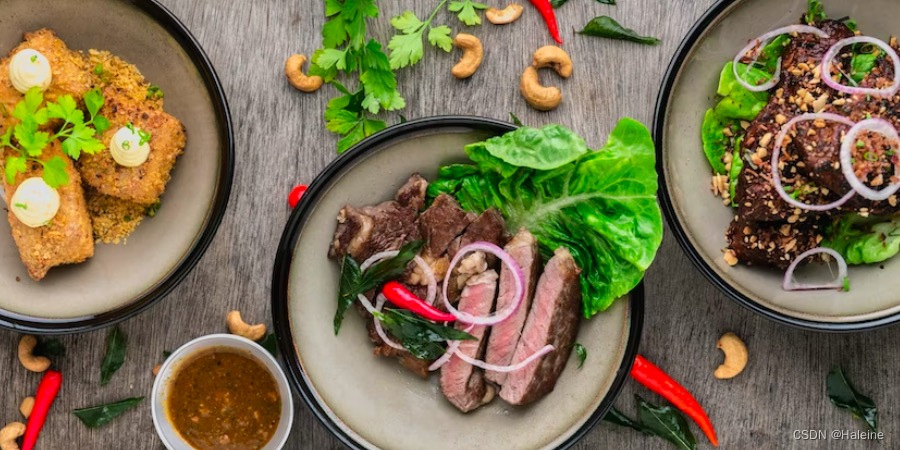20230311英语学习
Philosophy of Food: Guidelines for an Authentic Approach to Eating
饮食哲学:值得思考的问题

What's Philosophical About Food?
Philosophy of food finds its basis on the idea that food is a mirror.Eating mirrors the making of a self, that is, the array of decisions and circumstances that bring us to eat the way we do.
In them, we can see a detailed and comprehensive image of ourselves reflected.Philosophy of food reflects on the ethical, political, social, artistic, identity-defining aspects of food.
Food as a Relation
Food is a relation.Something is food only with respect to some organism, in a set of circumstances.These, first of all, are bound to vary from moment to moment.For instance, coffee and pastry are a fine breakfast or afternoon snack; yet, to most of us they are unpalatable for dinner.
Secondly, circumstances are bound to involve principles that are, at least in appearance, contradictory.Say, you refrain from eating soda at home, but at the bowling alley, you enjoy one.At the supermarket, you buy only non-organic meat, but on vacation, you crave for a McBurger with fries.
Any given 'food relation' represents the eater's needs, habits, convictions, deliberations, and compromises.
Food Ethics
Probably the most obvious philosophical aspects of our diet are the ethical convictions that shape it.Would you eat a cat?A rabbit?Why or why not?It's likely that the reasons you give for your stance are rooted in ethical principles.
Or, consider vegetarianism: a large number of those who conform to this diet do so to prevent unjustified violence being done to animals other than human.
Peter Singer labeled "speciesism" the attitude of those who draw unjustified distinctions between Homo sapiens and other animal species.
Food as Art?
Can food be art? Can a cook ever aspire to be an artist on a par with Michelangelo, Leonardo, and Van Gogh?This question has spurred heated debates over the past years.
Some argued that food is (at best) a minor art, for three main reasons.First, because foods are short-lived.Second, food is intrinsically linked to a practical purpose – nourishment.Third, food depends on its material constitution in a way in which music, painting, or even sculpture are not.
The best cooks would hence be very good artisans; they can be paired with fancy hairdressers or skilled gardeners.
On the other hand, some think that this perspective is unfair.Cooks have recently started featuring in art shows and this seems to concretely disprove the previous remarks.
Food Experts
Americans keep in high esteem the role of food experts; French and Italians notoriously do not.Probably, it's because of different ways to regard the practice of evaluation of a food.
Is that French onion soup authentic?The review says the wine is elegant: is that the case?Is there a truth when it comes to judgments about food?This is one of the hardest philosophical questions.
In his famous essay "Of the Standard of Taste", David Hume shows how one can be inclined to answer both "Yes" and "No" to that question.
On the one hand, my tasting experience is not yours, so it is totally subjective; on the other, provided an adequate level of expertise, there is nothing odd with imagining to challenge a reviewer's opinion about a wine or a restaurant.
Food Science
Most foods we buy at the supermarket carry on their labels "nutritional facts".We use them in order to guide ourselves in our diet, to stay healthy.
But, what do those numbers have to do really with the stuff we have in front of us and with our stomachs?Can nutritionism be regarded as a natural science on a par with – say – cell biology?
For historians and philosophers of science, food is a fertile terrain of research because it raises basic questions regarding the validity of laws of nature (do we really know any law regarding metabolism?) and the structure of scientific research (who finances the studies on the nutritional facts you find on the labels)?
Food and Self-Understanding
In the end, as the average person enters at least a few 'food relations' per day, a refusal to ponder eating habits in a meaningful manner can be likened to a lack of self-understanding or lack authenticity.
Since self-understanding and authenticity are among the chief aims of philosophical inquiry, then food becomes a true key to philosophical insight.The gist of the philosophy of food is hence the quest for an authentic diet.
